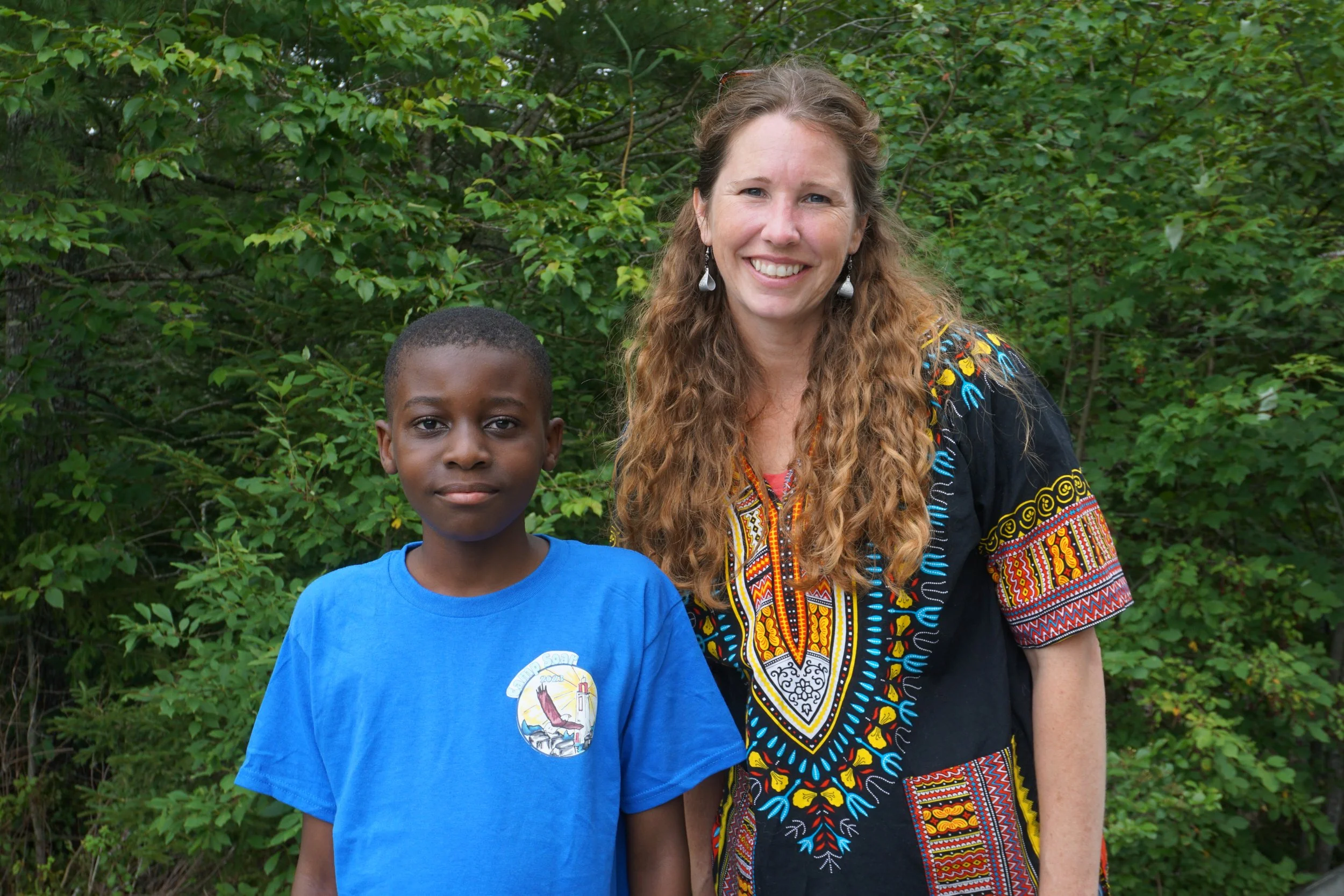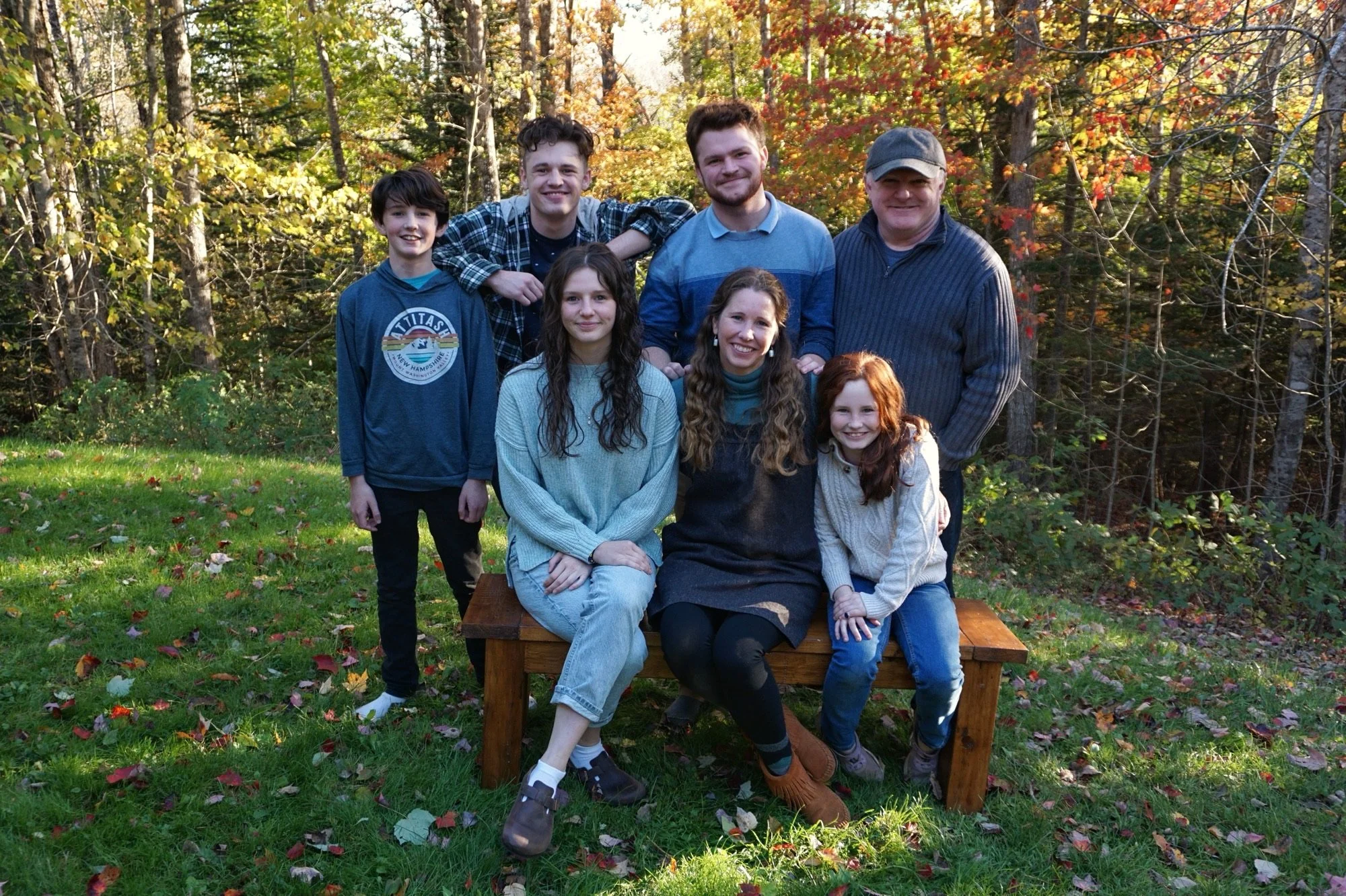Don’t Lose Heart
by Laura Callaghan, Borderless (Canada)
A few weeks ago, my son was working on his submission for a post-secondary school grant for MK’s. There was an essay component and the entry was soon due. I offered to email it for him, and he noted,
“I don’t really want you to read the essay mom.”
”Why? What did you write about?”
”I wrote about how missions kinda messed me up.”
….Oh, wow, ok…. pause… um, did you perhaps include a few positives?
I could take a guess what he was referring to. Twice, while working on the field we were evacuated due to violence. In an instant he lost his home, his way of living, his pets (not to mention his Calvin and Hobbs and Lego collections) all vanished.
Missions for him, meant living with the threat of snakes, scorpions, tribal violence, days in the car, hours long church services in a language he did not understand, threats of insecurity, few peers he could speak to, the constant interruption of homeschool due to patients at the door, and the kids that he would see who were sick, suffering or who did not find a cure. For my middle-school aged children it was hard, it was sometimes scary.
The wild animals, the chanting warriors, overhearing the hushed parental tones of strategy due to the proximity of danger.
He looks back at some of those memories with great fondness too. Great memories of church, Kijabe visits, safari, visiting villages, sharing the Jesus film, even an excited ride along with “animal planet” whose film crew landed in our front yard.
Our kids were amazing troopers, we coined the term “Blupper” (a colloquialism for breakfast-lunch-supper) for our medical outreach clinics, when it was understood, the day would only hold one meal. His time in Africa defined him, it is a part of his identity that he loves, and yet there is raw honesty about some of what it cost.
-Laura in clinic-
I felt called into missions when I was 8 years old, perhaps it was the smell of ozone and dust in a warm heated lamp and the whir of the slide projector in a dark church auditorium with Ivor Greenslade giving a narrative tour of the mission work in the Amazon jungle. I felt drawn to Jesus, to this lost world and His work. I felt Jesus calling me to love those He loves, in the way that He loved me. There was such joy in serving Jesus, excitement to live out this calling and a sense of gratitude that I could participate. It fit for me as a nurse and medical missionary to treat the sick, to care for the orphans, to heal the brokenhearted, to love as Jesus loves and to share Him. In my quiet way, I could live out the admonition of St. Francis of Assisi: “Preach the gospel at all times, and when necessary, use words”. As a single missionary and then as a married one with children, I journeyed into challenging fields of dispensary nursing/healthcare in remote locations, loving deeply and healing where I could. I often was overwhelmed with the needs, drought, poverty, morbidity, preventable illness, mortality, loss, violence, grief and suffering.
-Samburu baby (with burns) coming for dressings with banana leaf-
-Sitting with Jesse and Eve, talking with some Samburu children-
Over our two terms we had numerous medivacs for medical emergencies (both for patient needs and for our own family), we lived in the village just after a massacre, navigating the tribal tensions and increasing risk, we had to leave two different homes, two different ministry locations and the people we loved in tense moments to escape escalating violence. I remember one occasion evacuating and coming to a missions lodge to rest afterwards. Another guest was there, recalling her evacuation from Sudan, recounting in a matter-of-fact description how she dug a hole for herself and her children, to keep them safe from the bombs. And I remember thinking, “Can she hear herself? Is she processing what she is saying?”
A few weeks later, back in Canada, in a rather random act of violence, with no loss of the irony of fleeing insecurity in Africa to the safety of Canada, Jay and I were both assaulted outside of our home.
He went off to get a CT scan, and I went off to my day job, to work at the children’s hospital. Bruised and tired looking, my colleagues, whispering amongst themselves, one psychologist on the team, checks in… So, Laura, are you ok? “Oh yes, it’s all good, I’ve had worse…” He looked intently and tenderly at me, “but why would you come to work today?” I shrugged my shoulders, “Oh, I guess I hadn’t thought of it really, it just seemed like the next thing to do”.
I actually hadn’t thought about it, most likely, because I didn’t know how to do anything else…keeping going was the only thing I knew to do.
-Camp Soar group photo (Nova Scotia)-
We relocated to Nova Scotia to minister to the African Diaspora, primarily working with children, youth and students in camp and university outreach ministry. We dodged the occasional arrows of criticism for returning home from the field, and for having to take on work at the hospital to keep financially salient.
God opened the doors for an opportunity to work at a women/children’s hospital in the area of newcomer (child/youth) mental health. I was thankful for an opportunity focusing on supporting newcomers, most of whom had recently arrived in Canada from refugee backgrounds. I occasionally could surprise some of my patients speaking in their first language of Swahili with them. My work more often than not was positioned to hear repeated stories of migration trauma. Once again, I worked in acute proximity to suffering that was difficult to comprehend. Immersed in work of caring for the hurting and mental health of others, I felt purpose, I also felt safe from my own suffering. The first rule of triage is to treat the sickest patient first. It was not lost on me, the irony, that I worked as a trauma therapist with insights for everyone else’s trauma, but my own.
While my heart struggled to process all that I had witnessed and experienced, the machine of missions was surprisingly alive and well, the cogs and wheels, well oiled, effectively moving ahead. The metrics, marketing, and ministry all kept going. Money was raised, tasks were done, newsletters and reports written, conferences attended, projects continued, Jesus was preached.
-Laura with Camp Soar camper (Nova Scotia)-
Ministry continued but my heart was bruised and battered. The wounded heart pumps inefficiently, it struggles to refill, to beat properly, to nourish the rest of the body with the distribution of life-giving blood. Aware of my condition, I relied on spiritual bypassing to reroute my thoughts, protect me from further harm. It made sense to shield my burden with the knowledge and justifications that “God knows what I can handle”, “Jesus also suffered, should I not expect to as well?” “My pain is finite compared to the infinite grace and goodness of God, eternity that awaits” along with the dismissive pragmatism that, “My experiences do not even compare to what others have had to face.” and the missionary mindset of “keep calm and carry on.”
I recall one of the first conversations with a missionary on the field, as a young 20 year old volunteer over breakfast at Mayfield Guesthouse, a veteran missionary sharing his wisdom and comedically yet candidly shared,
“Don’t worry, the worst that can happen is you die, and that only happens once.”
I learned there is little space to talk about one’s own suffering - with fellow missionaries (who have endured more than I); with supporting churches (who want to hear the good news stories) with your family (who would only worry if they knew that you nearly died of Dengue fever).
A Caution and Encouragement
As a parent, you often wish you could re-do moments. If I could re-do that moment with my son, where he shared that missions was hard, I wish I could have validated his courageous honesty and simply said, ‘yeah, it is/was hard for me too!”
Missions is hard. There is a call to sacrifice, to live and minister as Jesus did, in the proximity of the lost, of those who experience suffering and to fellowship in those sufferings. And there is incredible joy in serving and sharing Jesus. But keep mind of your heart.
Missions didn’t mess me up, but the way that I often engaged in it, holding tight to that conditioning and ego of being ‘real missionary’ tough, while engaging in spiritual bypassing that effectively allowed me to avoid my own wounded condition so as to continue ministering to others, led me to a place where I had to consider with deep honesty the words in Rev 2: 2-4 “I know your deeds, your hard work, your perseverance….you have persevered and endured hardship for my name and have not grown weary. Yet this I hold against you. You have forsaken the love you had at first.”
In other words, your works are good, faithful, you persevere despite difficulty, but where is your heart? It is easy perhaps to continue in the motions of the missions, while losing the heart of it. It is easy to attend to the suffering of others while dismissing your own, it is easy to focus on the metrics and lose sight of the Master.
The words of Revelation 2 are good reminders for us all. It reminds me that as I engage in ministry, I need to pay attention to my own heart. For me, that means not avoiding the impacts of trauma and vicarious trauma; applying the healing words and grace of Jesus (I so often share with others) to my own heart and life; being vulnerable to recognize that if Jesus needed rest (and He was God) that I may need rest too; If Jesus could express his deep emotions with others (compassion, anxiety, sadness) then maybe it’s ok that I do as well.
-The Callaghan family-
*This article was originally published in the Health Matters - Volume 40 edition September 2024








